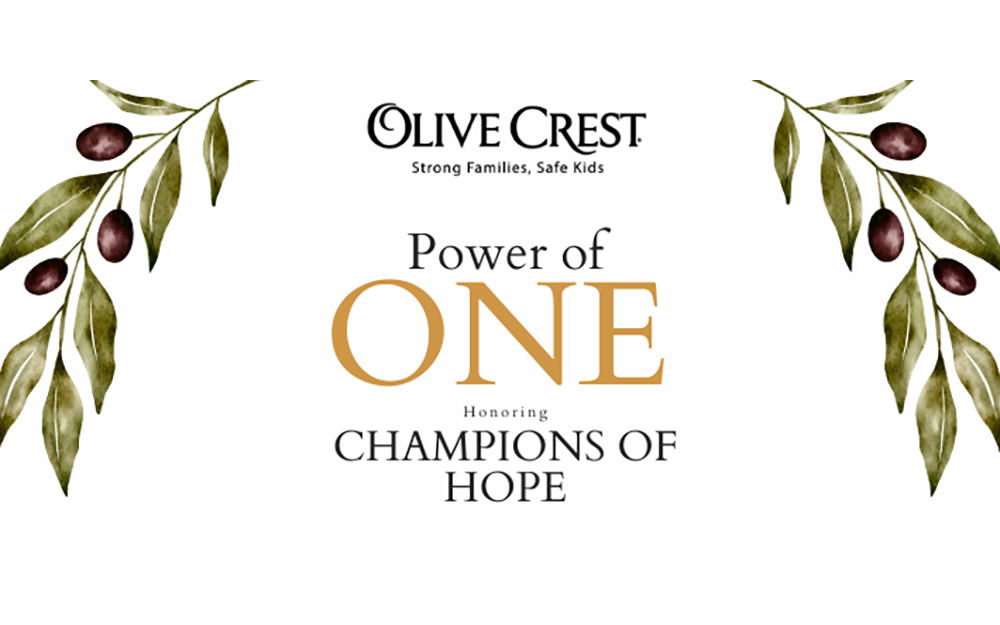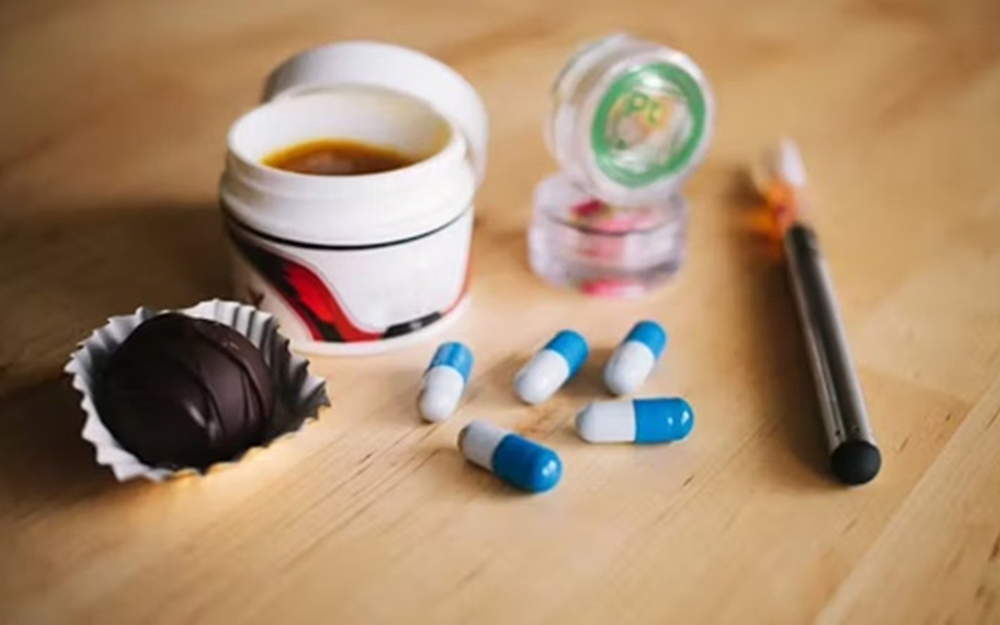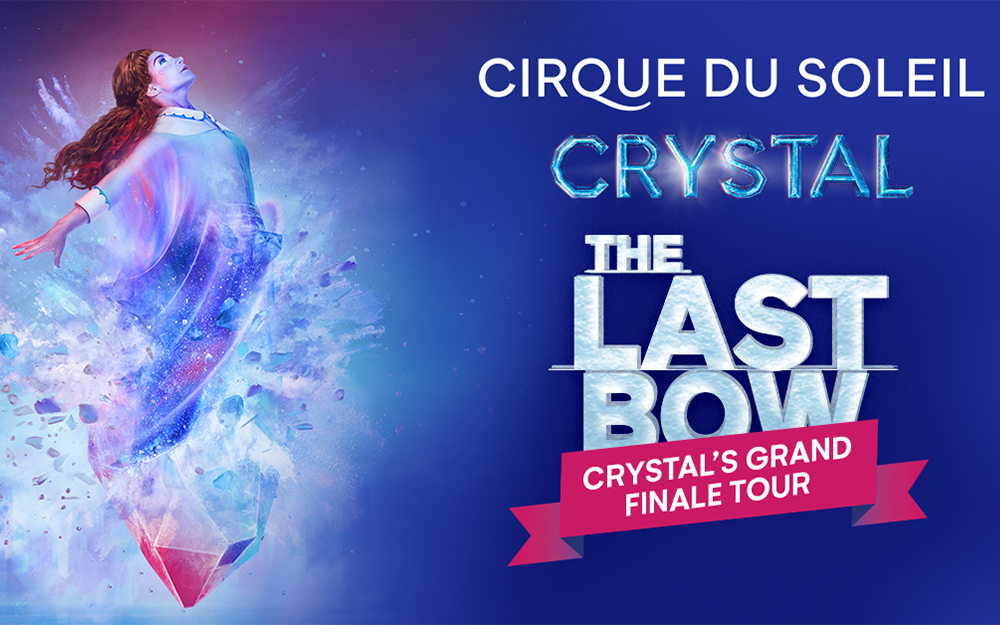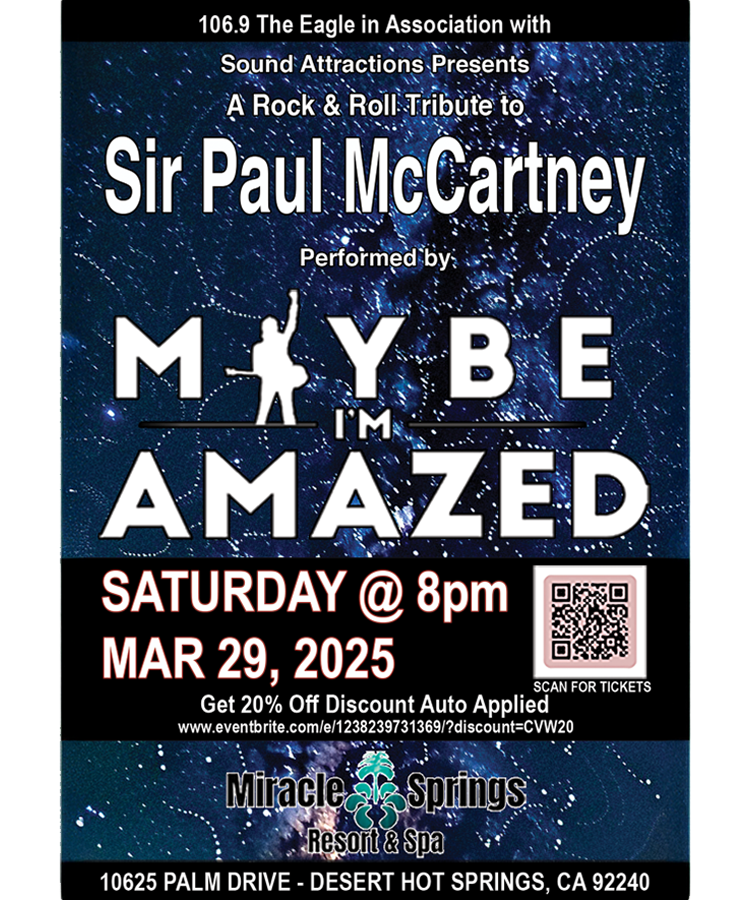
“So Rebellious A Lover” (Sunset Blvd. Records)
By Eleni P. Austin
For one brief shining moment, back in the late ‘80s, Gene Clark and Carla Olson joined a musical duo pantheon that included Johnny Cash & June Carter Cash, George Jones & Tammy Wynette, Sonny & Cher, Nancy Sinatra & Lee Hazelwood and John Doe & Exene Cervenka. Carla was just at the beginning of what would become a storied career, and Gene, as it turned out, was reaching the twilight of his musical journey.
In the mid ‘60s, Missouri native Gene Clark was flying high as the charismatic frontman and principal songwriter for The Byrds. The Los Angeles five-piece included Roger McGuinn, David Crosby, Chris Hillman and Michael Clarke. Fusing Folk and Rock & Roll, they skyrocketed up the charts with a ringing cover of Bob Dylan’s “Mr. Tambourine Man.” But original songs like “I’ll Feel A Whole Lot Better,” “Eight Miles High” and “She Only Cares About Time,” were equally compelling. They began to expand their sound, adding traces of Country, Baroque Pop, Bluegrass and Psychedelia to the mix.
Even though they were riding high, Gene quit the band in 1966. His departure hinged on the fact that The Byrds’ management insisted Roger become the band’s primary lead vocalist. Also, he’d developed a fear of flying, which hampered his ability to tour.
In 1967, he embarked on an ambitious and adventurous solo career. Throughout the years, he collaborated with everyone from Country duo The Gosdin Brothers, Bluegrass legend Doug Dillard, (future Flying Burrito Brothers and Eagles guitarist) Bernie Leadon and Native American guitar phenom, Jesse Ed Davis. His sound expanded on the paradigm he’d created with The Byrds, further exploring a synthesis of Folk, Country, Bluegrass, Pop and Rock
During the ‘70s, he briefly rejoined The Byrds and later partnered with his avian compadres, Roger and Chris, as McGuinn, Clark & Hillman. Sidelined for a bit due to substance issues, he rebounded in 1984 with his album Firebyrd. Coincidently, artists like Tom Petty, R.E.M. and The Long Ryders have recently begun reintroducing jangly, Byrdsy, Roots Rock to a new generation of music fans. It was around this time that he first connected with Carla Olson.
Carla grew up in Austin, Texas, just blocks from the railway tracks. As a kid, train travel represented freedom and the allure of exotic places for her. She grew up loving music, early inspirations included Joan Baez, Bob Dylan and The Beatles. She started with an acoustic guitar but quickly segued to an electric model. By the end of the ‘70s, she had formed The Violators, with (future Go-Go) Kathy Valentine.
Seduced by the siren song of Rock & Roll, the bandmates left Texas in the dust, bound for Los Angeles. Arriving at the tail-end of the city’s Punk Rock renaissance, they formed, (along with former Dwight Twilley Band member, Phil Seymour), seminal Roots Rock outfit, The Textones. Their music was a potent combo-platter of Country, Blues, Folk and primitive Rock & Roll. Playing in clubs like The Whisky, The Starwood and Madame Wong’s, they cultivated a passionate fan base.
Around this same time, Carla’s cool, blonde beauty caught the attention of Bob Dylan. Uninterested in appearing in his own videos, he recruited Carla to star in the video for his song, “Sweetheart Like You.” As partial payback, he gave her one of his unreleased songs, “Clean Cut Kid,” which appeared on The Textones’ official debut, 1984’s Midnight Mission. Not long after, she connected with Gene.
As Carla tells it, she met Gene during his solo show at Madame Wong’s. “At the end of the show, his fans coaxed an encore out of Gene, and they launched into “I’ll Feel A Whole Lot Better.” Tom Slocum, one of Gene’s friends, was sitting in the next booth and asked if he could join us. Next thing I know, he was taking my hand and pulling me toward the stage. He said ‘You can sing with them on this one, you know it-right?’ Halfway through the guitar solo, Gene says ‘Hi, I’m Gene Clark,’ to which I replied ‘Carla, Carla Olson, nice to meet you.’”
Their musical chemistry was immediately apparent. Following the Madame Wong’s show, Gene and Carla began writing songs together. By 1986, they headed into the studio with a wolfpack of pickers and players. The result was the 1987 album, So Rebellious A Lover. Critical acclaim was unanimous, matched by modest sales. Despite his health issues, the pair began working on a follow-up. When Tom Petty recorded a faithful version of “I’ll Feel A Whole Lot Better” for his Full Moon Fever album in 1989, Gene experienced a financial windfall, letting his appetites get the best of him. Neglecting their nascent partnership, he and Carla never completed a second record, and sadly, Gene passed away at age 47 in 1991. A 2013 documentary revealed he was suffering from throat cancer at the time of his death.
Of course, Carla continued making music with The Textones, as a solo artist, as well as collaborating with ex-Rolling Stones guitarist Mick Taylor and Long Ryders co-founder Stephen McCarthy. On her recent Have Harmony, Will Travel series, she partnered with guitarists like Jake Andrews and Craig Ross as well as vocalists like B.J. Thomas, Robert Rex Walker, Terry Reid, Peter Case, Timothy B. Schmidt and Mare Winningham.
In and out of print for decades, So Rebellious A Lover has eluded many a seasoned crate-digger. Now, thanks to the cool kids at Sunset Blvd. Records, the album is available once again on vinyl and CD, in fact the latter feature eight bonus tracks
The record kicks into gear with “The Drifter.” The south-of-the-border charmer is anchored by loping guitars, monochromatic bass lines, briny lap steel, rambling piano and jittery beat. Something of an outlaw saga, it focuses on a slippery character known as ‘The Drifter,’ who consistently eludes capture when their nefarious schemes go awry. Carla and Gene trade verses: “The desperados make a plan to set the town on fire, and when they try to make a stand, they were ambushed at the wire,” but her graceful contralto dovetails with his roughhewn tenor on the chorus: “The drifter never stays to fight, he keeps running till he’s way out of sight, but it gets him nowhere, and the drifter never pays the price, he’s running through the day and night, but he’s running to nowhere.” Courtly guitars intertwine with elegant piano and piquant lap steel on the break before riding off into the sunset together.
Gene and Carla wrote the lion’s share of songs here, but the record is dotted with a few trenchant covers, mining classic and contemporary sources. Anchored by jangly guitars, see-saw bass and a tick-tock beat, they offer up a buoyant arrangement of Woody Guthrie’s “Deportee (Plane Wreck At Los Gatos).” Written nearly 80 years ago, the protest song was a reaction to newspaper account of a plane crash that mentioned the pilot and crew, but omitted the Mexican migrant workers on the passenger list. Their voices tenderly wrap around lyrics that equal parts personal perspective and stark reportage: “Some are illegal and others not wanted our work contracts out and we’ve got to move on, six hundred miles to that Mexican border, they chase us like outlaws, like rustlers and thieves… Goodbye to Juan, goodbye Rosalita, adios mis amigos, Jesus Y Maria, you won’t have a name when you ride the big airplane, all they will call you is deportees.” Even though their version is nearly 40 years old, it feels particularly poignant in this current political climate.
The traditional Folk ballad “Come All Ye Fair And Tender Ladies” simply shimmers as sun-dappled guitars brush up against spidery bass and a slipstitch rhythm. Close harmonies and the filigreed arrangement nearly assuage this tale of a rounder and bounder who breaks hearts: “My daddy was a handsome gambler, he had a chain five miles long, on every link a heart gets dangled of another maid, he loved and wronged.” A lonesome whistle slinks through the break and a hazy harmonica zig-zags across the instrumental coda.
Gene and Carla lean into the heartbreak on the Flying Burrito Brothers’ sad-sack lament, “Hot Burrito #1 (I’m Your Toy).” The instrumentation dials back bass and guitar, paring down to torchy piano, a timekeeper beat and lachrymose lap steel. Gene goes it alone on the verses: “I’m the one who showed you how, to do the things you’re doing now, he may feel all your charms, he may hold you in his arms, but I’m the one who let you in, I was right beside you then,” and the betrayal feels palpable. Carla steps in at the chorus. As their voices synchronize, they create an an sweet-sour fusion that aches in all the right ways.
On John Fogerty’s “Almost Saturday Night,” they recalibrate the arrangement, transforming the urgent Rocker into a playful Texas Two-step. Cheerful piano notes partner with rippling mandolin, walking bass lines and a chugging backbeat. Their vocals ride tandem here, dipping and swaying through the the melody’s gentle bends, as lyrics extol the virtues of the weekend: “Gonna push all the clouds away, let the music have its way, let it steal my heart away, cause you know I’m goin’/ Outside they’re ringing, the night train is bringing me home, when you hear the locomotion get ready to ride, cause it’s almost Saturday night.”
Of course, the best tracks here are the originals that Carla and Gene each contributed to the record. Along with “The Drifter,” which she co-wrote with Tom Jr. Morgan and Joe Reed, she authored two other songs, “Every Angel In Heaven” and “Are We Still Making Love.” The former, written with George Callins, matches prowling bass lines and shang-a-lang electric guitar to a slapdash beat. A tale of sin, salvation and hardscrabble survival, it echoes the vivid narratives that Bobbie Gentry conjured in the late ‘60s: “Spent some time in a Texas prison, a man said he wanted my life, he thought I cheated him so he came after me with a gun, but I had a knife, when I got out I kept on wanderin,’ Texas was no place to be, the man I killed had lots of family there, and all of them were trying to find me/And then I saw every Angel in heaven, every angel dressed as white as light, and in all my despair, I could see them standing there, to help me through that lonely night.” Dulcet acoustic arpeggios and thrumming bass cut a swathe across the break.
“Are We Still Making Love” is such an authentic Country Western weeper, it could be mistaken for a lost classic from Patsy, Loretta or Tammy. Chiming guitars, keening lap steel and deft bass lines are tethered to a clip-clop gait. Gene and Carla’s harmonies weave together as lyrics unspool a tapestry of tenderness, longing and regret. A longtime couple confronted with marital ennui, weigh the pros and cons of staying together: “Our Life’s come full circle now again, we lived life so fast, we thought it couldn’t end, and though we hurt each other so, all we had to know was how the heartaches begin/Are we still making love, or is it just part of the game, have we both had enough of life being the same, are we still making love, it’s so hard to say no, and though things may be rough, maybe it’s time to let go.”
Gene’s songs are equally compelling. On “Gypsy Rider,” dusty acoustic guitars partner with bleak lap steel, gritty electric guitars, buttery bass and a thwocking beat. Carla shadows Gene’s vocals. Lyrics yearn for the freedom of the open road, with a hint of “Baby, baby don’t get hooked on me,” lone wolf machismo: “Gypsy Rider, sing your 2-wheel symphony, you know there’s nothing to explain, she should have known by now, you’re just a vagabond, you may never pass this way again.” Rapid-fire mandolin notes dart across shimmery lap steel on the break, taking some of the sting out of the inevitable rejection.
If Marty Robbins and Tim Buckley ever collaborated, it might sound like “Del Gato.” High lonesome lap steel envelopes strumming guitars, lowing bass and a brushed beat. Lyrics spin a yarn of a solitary Cowpoke avoiding a hangman’s noose: “My name is Del Gato, born close to the border, of white blood and red blood I came, I travel the saddle, I follow the cattle, down on the range where they graze, and I just ride in from a hard Southwestern drive, my lips parched and bloodied, my face torn by sandstorms and pride/Loyalties riches and and inner-bred ditches was the brew I drank as a child, so rebellious a lover, Don Juan was my cover, they die-cast my type, called me wild, and I just ride in from a hard Southwestern drive, the hanging tree is waiting for me to arrive.”
Finally, longing and heartache coalesce on “Why Did You Leave Me Today?” Plaintive lap steel, searching bass, pliant guitars and a loose-limbed rhythm mirror melancholy lyrics. It’s a familiar story, material wealth doesn’t always guarantee happiness: “For so long, worked so hard, we didn’t have a dime, but we had one another’s love, that was all the time/Then one day, our ship came in, the answer to our dreams, a mansion filled with social life and gold and limousines.” Gene and Carla’s harmonies blend beautifully on chorus adding grace, grit and gravitas to this restless farewell.
The original 11-song set ended on a bittersweet note with a winsome rendition of Joe South’s “Don’t It Make You Want To Go Home.” Spanish-tinged guitars and dobro connect with angular bass and a whispery beat. Carla and Gene trade verses as homesick expectations are dashed by the grim reality of progress: “But there’s a six lane down by the creek, where I went skinny-dippin’ as a child, and a drive-in show where the meadow used to grow and strawberries used to grow wild.” Their honeyed harmonies loop together on the chorus and a smoky harmonica ushers the song to a close.
Thanks to Sunset Blvd. Records, the album doesn’t end there. Scouring the vaults, they have included eight more songs. There’s a rollicking version of Phil Ochs’ “Changes,” as well as the iridescent “Jokers Are Wild.” and he desolate “Broken Hearts And Broken Dreams.”
Gene offers up an alternate version of “Gypsy Rider,” along with a couple more originals, the crackling Country-Rocker, “Winning Hand,” and the Honky-Tonk heartbreak of “Lover’s Turnaround.” But Carla has the last word with the ragged but right “Number One Is To Survive.”
Produced by Gene, Carla and Michael Huey, the record featured Michael on drums, Roscoe Beck on bass along with Ed Black on pedal steel and guitar, Skip Edwards on keys, Tom Jr. Morgan on flute and piano, Otha Young on lead acoustic guitar, Long Ryder Stephen McCarthy on lap steel, guitar and dobro and legendary pal Chris Hillman on mandolin.
Thanks to the cool kids at Sunset Blvd Records who have given the world another chance to discover this record. So Rebellious A Lover remains ridiculously wonderful. A groundbreaking Americana effort (long before that term was coined). It smartly zeroes in on Gene and Carla’s undeniably earthy, yet ethereal vocal chemistry. Back in 1987, it was an instant classic. Nearly 40 years later, it’s timeless.









































